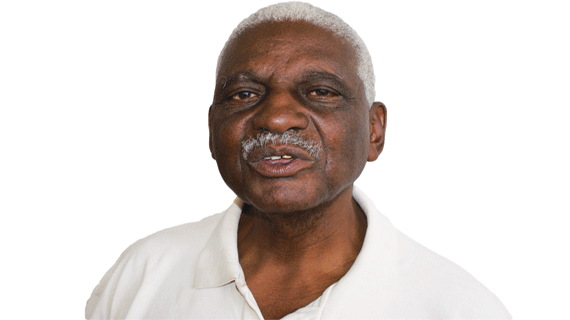
WE are attempting to answer the question: What did marriage mean to the Ndebele people? Did they practice it because it was something that has always been done since time immemorial or did they take it as a natural thing that human beings have developed over time?
If that were so, what meaning did they give it as an institution within their society? The Westerners talk about holy matrimony to imply that marriage was ordained by God.
Some churches talk about marriage as one of the holy sacraments. This, of course, is totally foreign to Ndebele culture. Yet marriage remains a one of their most revered institutions. We have tirelessly repeated that the Ndebele society did not brook the presence of a bachelor or spinster in their midst.
Marriage was the destination of every growing up person. Nxa wawuyisigwadi wawudingelwa umfazi (ukhoniselwa, uphiwa kumbe ubanjelwa). It was a shameful stigma to be unmarried. Therefore, marriage must have meant a lot to the Ndebele psyche, only socially, but spiritually as well.
We have already discussed that marriage symbolised love between a male person and a female person. They knew no other form of love that was an attraction one for the other that roused erotic feelings. The Ndebele took that love as fully expressed and consummated by marriage.
The Ndebele were not an emotional and showy people who went around holding each other hand-in-hand or sitting with their spouses at public places, or constantly telling the other: “I love you.” Yet their marriage remained supported by society.
So much so that “umfazi womuntu wayesesatshwa,” you dared not touch someone’s wife; that was sacred ground. If you did and you were found out, woe unto you! Ufile ndoda.
Ndebele had those norms that respected and supported the marriage institution. Married women had a distinct and identifiable way of dressing (eg by all icholo ) and a woman with those social appearances was approached with difference by other men besides her husband.
- Chamisa under fire over US$120K donation
- Mavhunga puts DeMbare into Chibuku quarterfinals
- Pension funds bet on Cabora Bassa oilfields
- Councils defy govt fire tender directive
Keep Reading
In this we cannot miss the limits imposed upon society by the marriage institution. I attended a chief’s court where maNyathi complained “Nduna yethu baba Zondo, umkami uNcube kasadli ekhaya.”
The matrimonial implications of such a complaint are far reaching and the chief, the court, the community, let alone the family cannot ignore it.
They must put it right. Westerners do not understand all this. In the 1950s a woman dragged her husband before a native commissioner, now known as district administrator and complained: “Nkosi ,umkami kasangiphi ingubo!” the quick response from the native commissioner was: “Madala, ndaba wena hayikhona nika fazi kawena lobhlankethi?” Did this have any impact upon the community?
Marriage goes far beyond the two people who get married. You marry into the family, into the community and into the nation: Wathatha koGasa. Thina amaNdebele singaba khwenyana bako Gasa.” Thus there is no such a thing in Ndebele as meddling in one’s private affairs. “Laph’uvel’ungubani wena ophatha umfazi butshapha ucabange ukuthi sizathula sikukhangele ?”
Marriage should be seen as an expression of the national ethos.
Marriage breaks all boundaries – family, tribal or national. Religion was not a factor to be considered in Ndebele because uNkulunkulu was not divided into camps such as Christianity, Islam, Buddhism and the lot. As soon as you married to a family you became “relatives” and all forms of social attitudes were extended accordingly.
The man’s (husband) sisters, brothers and relatives became brothers-in-law, sisters-in-law, relatives-in-law and so on. Any feelings of dislike, bitterness, hate or of looking down upon the other melted away or at worst were toned down by marriage against the will of their parents by disregarding the parents’ advice. Sometimes they eloped and only emerged when their feelings had died down.
In that way families that were at loggerheads were brought together by that marriage. To say that families were “brought together” is to say they became “relatives”. The word “relative” in Ndebele has a different and a wider meaning than in English.
Umlamu womkhwenyabo womzawakhe kamalumakho yisinini sakho njengoba nje umntanomnewabo kagogo wakho ozala umnewabo kamkamzawakho yisinini sakho. You see how wide and rich the marriage institution is and how it creates relationships and thus cements the Ndebele nation together.
Slave women who were captured at war by the Ndebele soldiers were brought en masse to the king. If he wanted to he could choose one or two for his wives and the rest he left to the army commanders to share among the warriors to be their “wedded wives”.
These wives came from a foreign country and their families were unknown. There were no formal and traditional negotiations for marriage which would have given chance to families to know each other and thus become “relatives”.
This part of the marriage institution was irregular and did not in any way “bring together” the Ndebele and the conquered tribes. Such wives were always relegated to an inferior position and served to satisfy lustful desires of the warriors.
The children born to them became fully Ndebele. Therefore, the purpose of marrying the women was to bear warriors for the nation and to increase the general population.
We repeat here for emphasis and for the purpose of rounding up that among the Ndebele, the marriage institution was respected and highly promoted.
In terms of details as to how it was accomplished it cannot compare with the Western system. It knitted the Ndebele society together and helped to bring a strong and united nationhood by forming wider relationships. Now and again extra-territorial relations were forged when a chief married from outside his tribe.
For now this article concludes our interpretation of the Ndebele marriage institution. Readers are encouraged to engage the author at cell No 0772 370 893 on this topic or to open a discussion among themselves.










